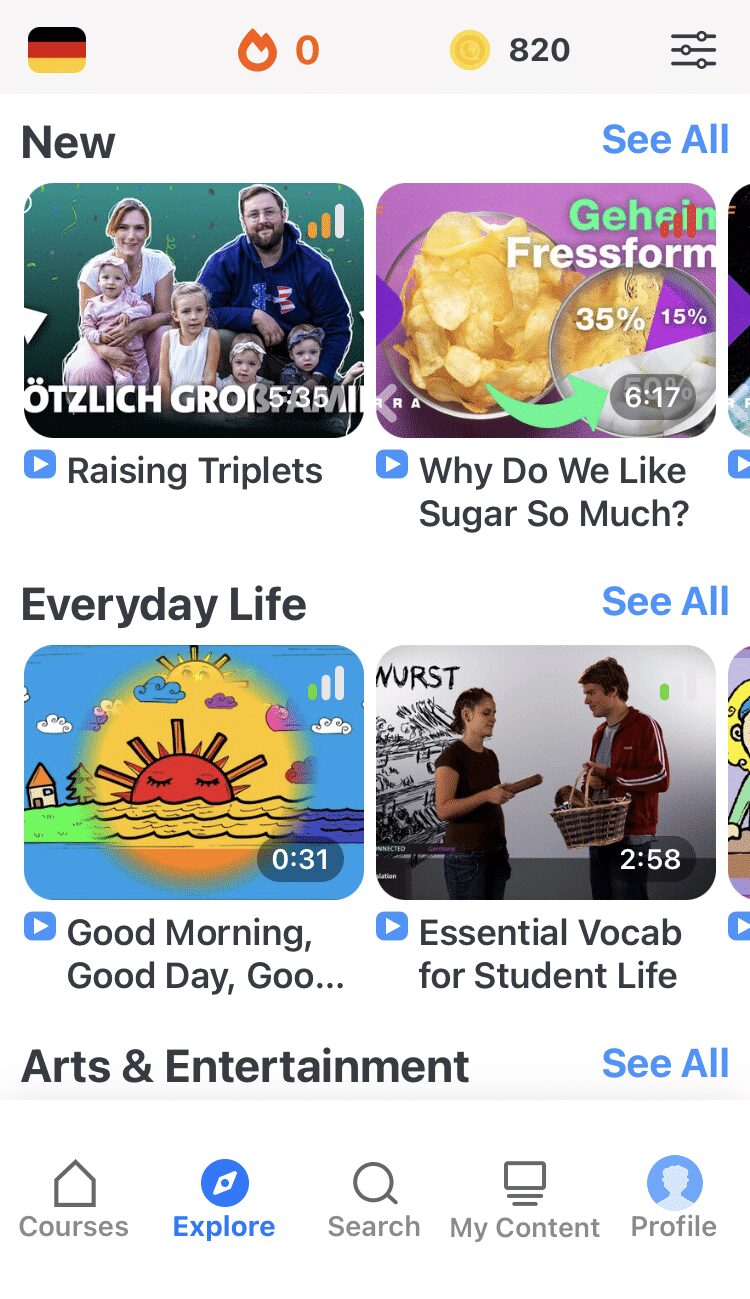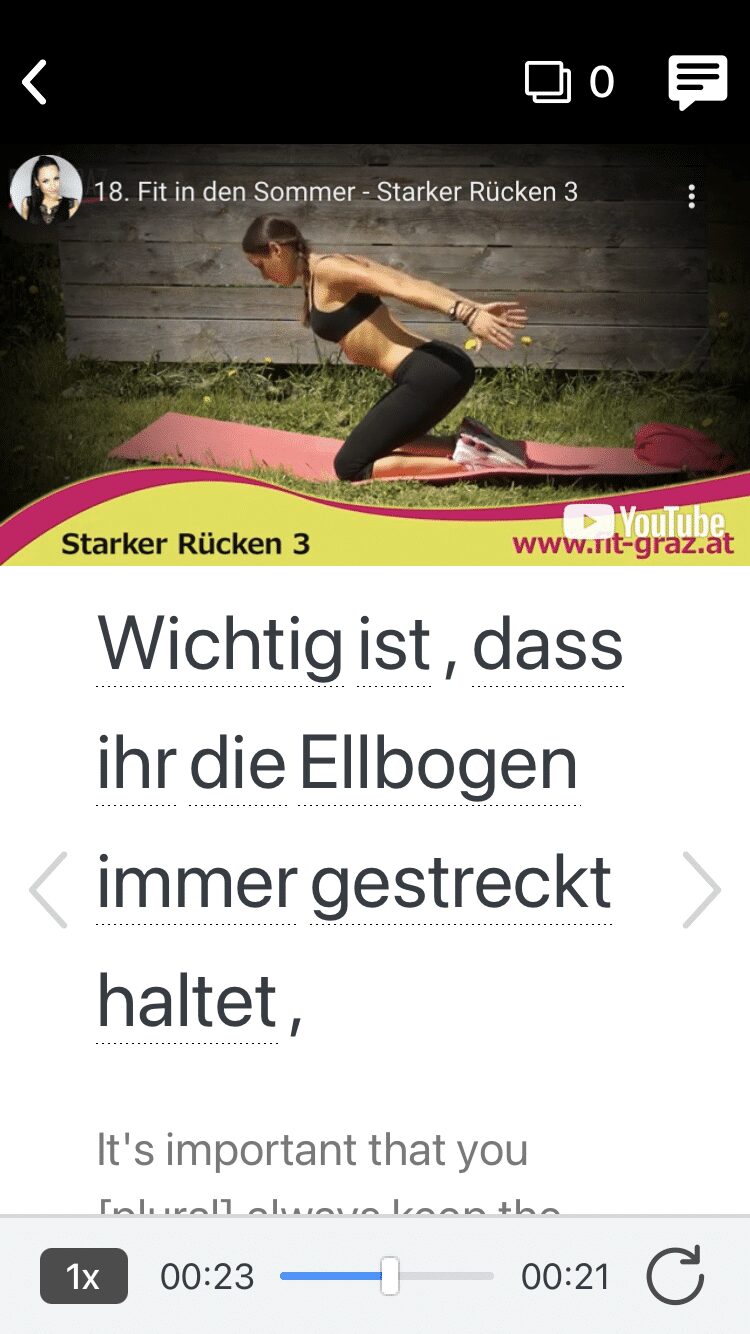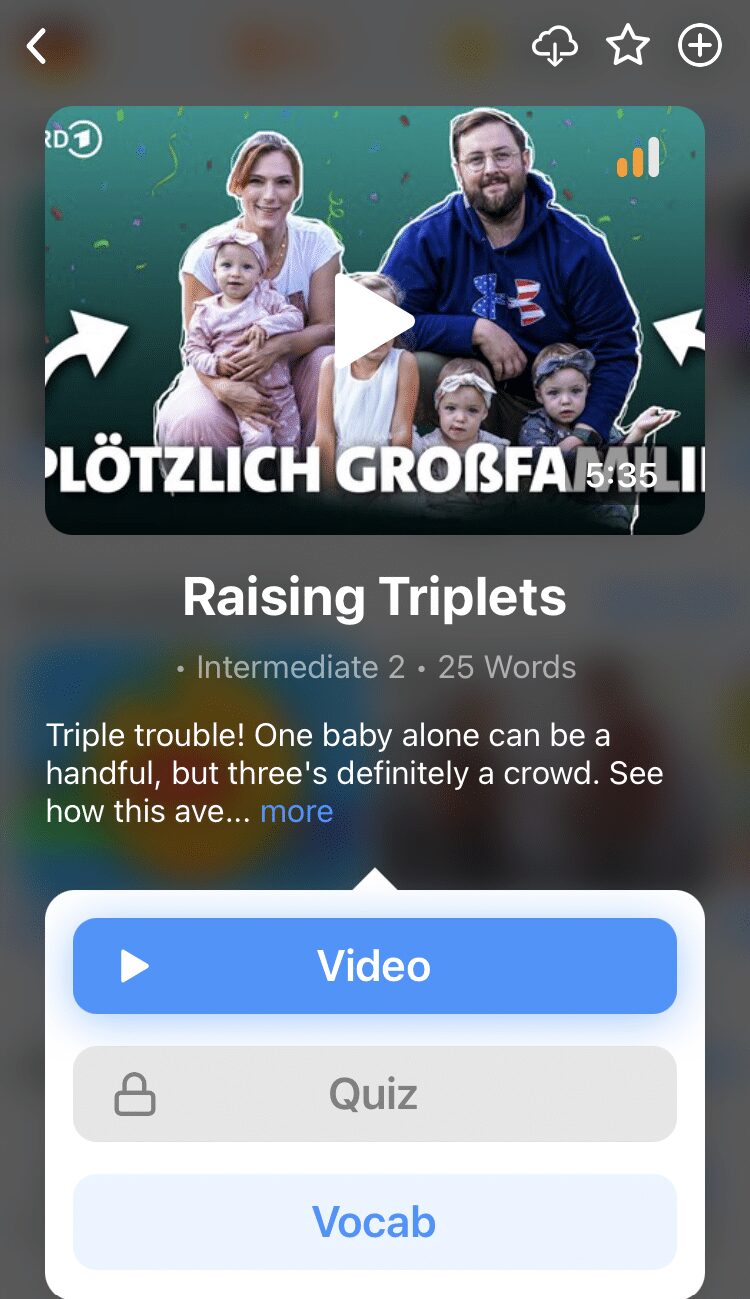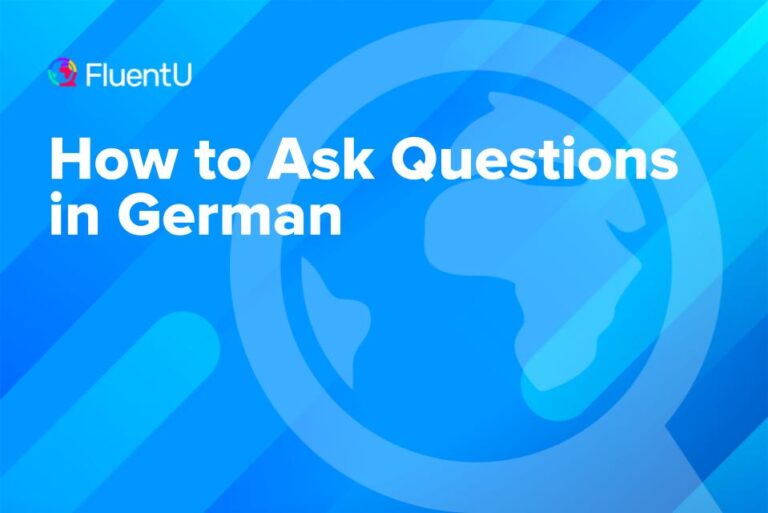Contents
- 1. Grüß Gott vs. Guten Tag
- 2. Semmel vs. Brötchen
- 3. Erdapfel vs. Kartoffeln , Paradeiser vs. Tomate
- 4. Klo vs. Toilette
- 5. Mahlzeit vs. Guten Appetit
- 6. That Austrian accent
- 7. Austrian verbs
- 8. Um 5 Euro vs. für 5 Euro
- 9. Spital vs. Krankenhaus
- 10. Sackerl vs. Tüte
- Why Do I Need to Learn Austrian German?
- And One More Thing...
Learn Austrian German: 10 Differences Between Austrian and High German
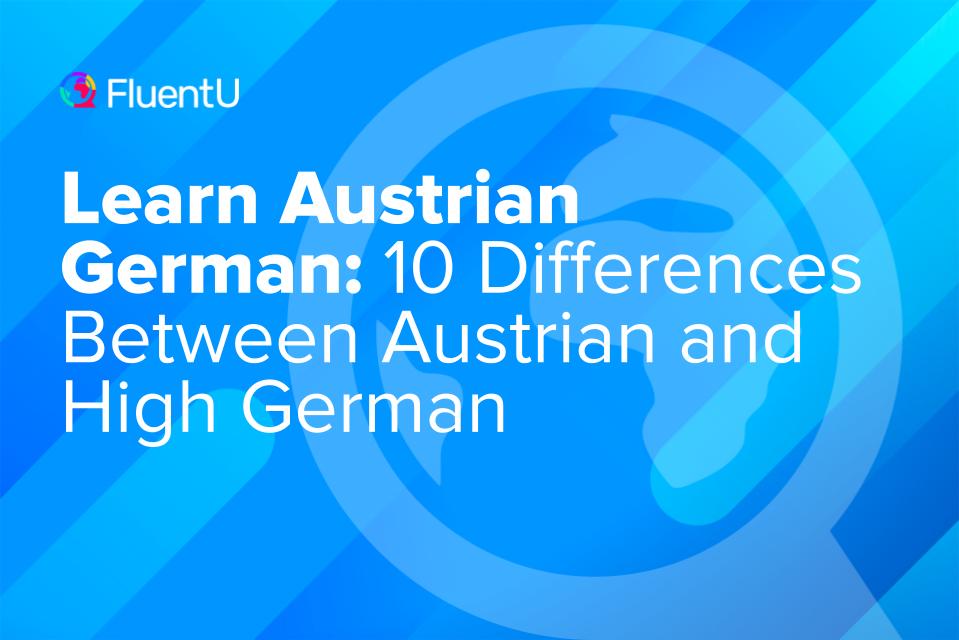
Like with English, German dialects spoken in various German-speaking countries can be pretty different from each other—and Austria is no exception.
Yes, they do speak German there—but if you want to thrive in that country, you’ll need to know a certain set of vocabulary, plus develop the ability to understand a pretty confusing accent.
Learn some new vocabulary, practice understanding pronunciation, and you’ll be the king or queen of Osterreich (Austria) from Vienna to Innsbruck.
Download: This blog post is available as a convenient and portable PDF that you can take anywhere. Click here to get a copy. (Download)
1. Grüß Gott vs. Guten Tag
In Germany, you say “Guten Tag” (Good day) to greet people. In Austria (and in Bavaria!) you say “Grüße Gott” (May God greet you). This greeting has its origin in the fact that Austria and Bavaria are traditionally Catholic regions. Northern Germans often don’t look kindly on this greeting—they might respond with a sarcastic “Wenn ich ihn sehe” (If I see him), a jab from the more Protestant and atheistic North.
2. Semmel vs. Brötchen
In Berlin, you would ask for your sandwich on a Brötchen (bread roll). Not so in Austria or Bavaria. In these regions, rolls are known as “Semmel.”
3. Erdapfel vs. Kartoffeln , Paradeiser vs. Tomate
In English, we may pronounce “tomato” differently (“I say tomato, you say tomah-to,” as the old song goes) but in the German-speaking world, different regions have completely different words for this food. In Austria, tomatoes are called “Paradeiser,” while they are called “Tomate” in much of Germany. Potatoes also differ from region to region. In Berlin, they are called “Kartoffeln,” while in Austria, you’ll find them sold under the name “Erdapfel” (literally “apples of the earth,” similar to French’s pomme de terre).
4. Klo vs. Toilette
In Germany, you’ll find bathrooms labeled “Toilette,” or with the British “WC.” In Austria, no such luck. In this part of the world, the toilet is called the “Klo.”
5. Mahlzeit vs. Guten Appetit
Ready to eat in Berlin? Say “Guten Appetit” (“Good appetite!”) and dig in! Ready to eat in Salzburg? “Mahlzeit” is the word you’re looking for. Remember, knowing all the niceties for practicing good etiquette is important.
6. That Austrian accent
When I visited Vienna in 2010, I didn’t know a word of German, so I happily roamed the streets without understanding anything.
When I visited Bavaria in 2015, I stared at waiters and shopkeepers in horror, thinking, “What are they saying?”
The Bavarian/Austrian accent can be hard to understand for someone who’s learned German in the North. The vowels are long and broad, and the cadence sounds more Swedish than anything.
The accent will be the hardest component of Austrian German for you to understand. You can always ask someone if you’re confused about a vocabulary word, but if you can’t understand what the person said at all, you’ll be in deeper trouble.
That’s why we recommend, before you go to Austria, that you spend some time immersing yourself in the language.
One way to do that is by listening to Austrian radio. It’s a great way to instantly immerse yourself in the unique sounds of the country.
Another good program for immersing yourself in the Austrian accent is FluentU.
FluentU takes authentic videos—like music videos, movie trailers, news and inspiring talks—and turns them into personalized language learning lessons.
You can try FluentU for free for 2 weeks. Check out the website or download the iOS app or Android app.
P.S. Click here to take advantage of our current sale! (Expires at the end of this month.)
7. Austrian verbs
You know how some German verbs take sein (to be) and some take haben (to have) in the past perfect form? (Example: “Ich habe angeruft,” or “I called,” versus “Ich bin gefahren,” or “I went.”) In Austrian German, you’ll find that a few haben verbs take sein. Sitzen (to sit) and liegen (to lie), for example, take haben in Germany, but sein in Austria.
8. Um 5 Euro vs. für 5 Euro
In Germany, you would buy something für 5 Euro (for 5 euros). In Austria, you would buy something um 5 Euro. Yes, sadly, there is a difference in prepositions, just when you thought you’d learned all of them!
9. Spital vs. Krankenhaus
In Germany, hospitals are called “Krankenhaus,” but in Austria, you would be rushed to the Spital if you had an accident. This is an important one if you’re planning to take advantage of Vienna’s biking culture, or Austria’s skiing and hiking opportunities. Better safe than sorry, right?
10. Sackerl vs. Tüte
In a grocery store in Germany, you would buy a Tüte to carry your purchases out. In Austria? A Sackerl.
Why Do I Need to Learn Austrian German?
The Hapsburgs set the standard.
Back in the 1700s, Germany, as we know it today, was a series of independent kingdoms. The largest German-speaking swath of land was the Hapsburg Empire, a territory that comprised much of Central and Eastern Europe, including present-day Austria. Many languages were spoken within this region, but when the German-speaking Hapsburg rulers introduced compulsory schooling in the late 18th century, they used their own language as the standard. And thus Austrian German was born.
It’s officially recognized by the European Union.
Austrian German is the only pluricentric language officially recognized by the EU (a pluricentric language is one with several standard, official variations, such as English). Austrian German was protected by the EU when Austria joined back in 1995.
It will help you in Northern Italy and Bavaria as well.
Austrian German is still spoken in some parts of Northern Italy, chiefly the South Tyrol, which was part of the Austro-Hungarian Empire until 1918. If you find yourself in this section of Italy just south of the Alps, you just might have a chance to use Austrian German.
On top of that, on the other side of the Alps in Bavaria, which is part of Germany, your Austrian German will also come in handy. Remember that the German language varies quite a bit from region to region within Germany. The Bavarian accent sounds quite similar to the Austrian accent (after all, Bavaria is right next to Austria, far away from the Prussian strongholds in the North) and the two regions share vocabulary as well.
You can see plenty of beautiful sights in Austria.
If you learn Austrian German, you’ll be better equipped to travel in Austria, a country full of beautiful places to visit and explore.
Vienna, the country’s capital, was also the undisputed capital of classical music during the days of Mozart and Beethoven before becoming a Paris-esque center of decadence, art and debauchery in the early 20th century. Today’s Vienna is a clean, calm (at least compared to Berlin!) center of classical music and Baroque palaces.
Salzburg, nestled to the west at the foot of the Alps, is perhaps best known as the home of the famous von Trapp family, who were immortalized by Hollywood through the movie “The Sound of Music.”
Nearby Innsbruck is a winter sports capital as well as another cute historical city. And let’s not forget the mountains, where you can ski, hike, pretend to be Maria von Trapp or just enjoy the beautiful scenery while sipping a beer and eating a strudel.
Some people say that, like the British and Americans, Germans and Austrians are two peoples divided by a common language.
But it doesn’t have to be that way!
Practice understanding the Austrian accent, study up on some of these key vocabulary differences, and you’ll do just fine in Germany’s southern neighbor.
But no matter what, if you encounter a word you don’t understand, just ask! This can be a great way to make new Austrian friends.
Download: This blog post is available as a convenient and portable PDF that you can take anywhere. Click here to get a copy. (Download)
And One More Thing...
Want to know the key to learning German effectively?
It's using the right content and tools, like FluentU has to offer! Browse hundreds of videos, take endless quizzes and master the German language faster than you've ever imagine!
Watching a fun video, but having trouble understanding it? FluentU brings native videos within reach with interactive subtitles.
You can tap on any word to look it up instantly. Every definition has examples that have been written to help you understand how the word is used. If you see an interesting word you don't know, you can add it to a vocabulary list.
And FluentU isn't just for watching videos. It's a complete platform for learning. It's designed to effectively teach you all the vocabulary from any video. Swipe left or right to see more examples of the word you're on.
The best part is that FluentU keeps track of the vocabulary that you're learning, and gives you extra practice with difficult words. It'll even remind you when it’s time to review what you’ve learned.
Start using the FluentU website on your computer or tablet or, better yet, download the FluentU app from the iTunes or Google Play store. Click here to take advantage of our current sale! (Expires at the end of this month.)

